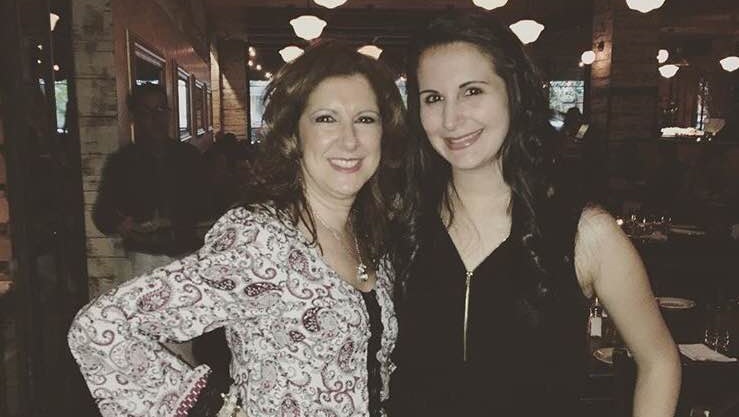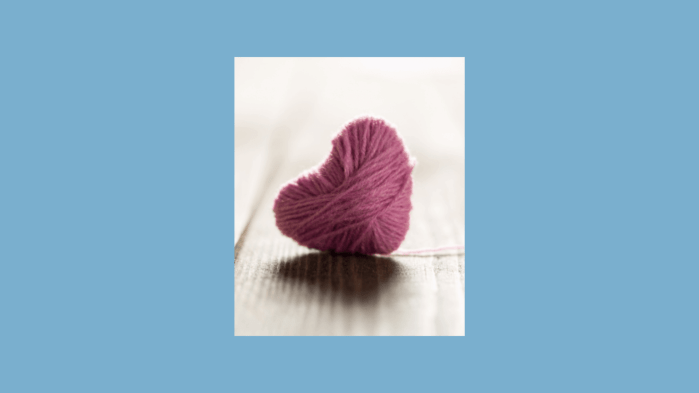By Natalie Coloprisco
Many people hear about cancer on TV but never imagine the disease affecting them or their loved ones. I was the same way until it affected my family, not once, but twice.
On March 3, 2012, we learned that my mother, Frances, was diagnosed with breast cancer. Seventeen months later, my family was devastated again when my older sister, Lauren, received the same diagnosis, at 24. Their doctors were shocked to have a back-to-back mother-daughter case, and my sister was the youngest patient they had ever operated on.
“Finding out the news about my daughter was far worse than finding out the news about myself—it was shocking and unheard of,” my mother recalled. “I spent one week in a daze wishing this all was some kind of bad dream. I couldn’t eat or sleep for days and it was the hardest thing for a mother to handle.”
One in eight women in the United States will be diagnosed with breast cancer in her lifetime, and it is estimated that more than 245,000 new cases of invasive breast cancer will be diagnosed this year, according to nonprofit breast cancer foundation Susan G. Komen. New York has one of the highest breast cancer incidence rates in the nation, with more than 15,000 cases diagnosed annually.
In the last five years, Long Island has had some of the highest breast cancer rates ever. Nassau County averaged more than 1,276 annual cases, and Suffolk more than 1,311. These numbers are double, even triple, those of other counties in New York.
These statistics truly hit home for us.
My family’s tough journey began when doctors discovered a cancerous lump during my mother’s routine mammogram. At first, her treatment focused on its removal, followed by routine doctors’ appointments. Their strategy was swayed when my mother found out she had a family history of the disease and carried the breast cancer susceptibility gene, known as BRCA. This gene normally acts to restrain the growth of cells in the breast but, if mutated, cells are more likely to develop additional genetic alterations that can lead to cancer.
“Going back and forth from doctor to doctor had my head spinning, and it became the hardest when I was faced with the choice between a lumpectomy and a double mastectomy,” my mom explained. “Knowing my chances of breast cancer reoccurring, I knew that I had to choose a double mastectomy.”
Five weeks after her diagnosis, she underwent a double mastectomy. Six hours later she emerged from surgery and began a painful recovery. Following her hospital stay, she spent the next two weeks bedridden.
My family and I came together and did everything we could to help her. My father, sister, brother and I, combined, could not complete all of her daily responsibilities. Cooking, cleaning and food shopping were just some of the duties I took on, in addition to all the demands of high school.
At 17, I was a full-time nurse at the beck and call of my mother.
It took a lot from me, and was one of the hardest things I’ve ever had to do, but when you see a loved one in so much pain, you do whatever it takes.
Following her first surgery, my mother underwent five weeks of radiation therapy, ovary removal surgery, reconstructive breast surgery, and tattooing of her areolas.
“After the surgery, I found out that I did not need chemotherapy, but I did need to undergo five and a half weeks of radiation therapy,” she said. “After all of this, I finally received some good news: My cancer did not spread. This was the point where I realized that I would not let cancer take over my life.”
Just as my mother completed her recovery, my sister decided to get tested for the BRCA gene. The results came back positive. It was extremely upsetting, but at 24 years old, she thought her risks of breast cancer were very low. Yet, a few months later, when my mother’s doctors performed a few tests on my sister, the results stunned everyone, including the doctors: My sister was in the very early stages of breast cancer.
On August 19, 2013, my family and I entered the hospital again, this time to support my sister as she underwent a double mastectomy. We were all so nervous and upset, but she was stronger than ever. She put her positive outlook on things and reassured us that everything would be okay.
“When I first found out I had the gene, I knew I wanted to have a double mastectomy because I didn’t want to experience what my mother went through,” she said. “Unfortunately, after going for the first round of testing that the doctor requested of me, I found out that I actually did have cancer. Although I had two choices, I already knew what my decision would be.”
She came out of surgery in an excruciating amount of pain. Barley able to speak, Lauren described it as the feeling of tons of bricks weighing down on her chest. Being so young, it was harder for her to deal with the pain. Unable to lift her arms, everything became impossible for her.
I am currently 22 years old, and the thought of this happening to me is constantly on my mind.
After about two weeks, Lauren recovered, but things were still difficult for her. Like my mother, she had tissue expanders put in. These are placed where the original breasts were, and are used to expand the muscles in order to make room for implants. Getting weekly fill-ups was also required. It wasn’t a pleasant experience.
After her mastectomy, Lauren underwent reconstructive surgery. She is now doing extremely well.
“Now that all is said and done, I don’t regret anything. I knew it was the best decision,” my sister said. “It all happened so fast. One minute I was finding out my results, and the next minute I was being prepped for surgery. Everything after my surgery was a blur to me. I was in more pain than I had ever been before.
“The first week was the hardest. I wasn’t even able to feed myself,” she continued. “It wasn’t easy being bedridden and being indoors, day after day. I was going stir-crazy. Before I knew it, I was fully recovered, doing my normal, everyday things. As I look back, I realize how thankful I am to have beat this.”
My family and I are thankful for the doctors who helped us through this entire journey. My mother and sister’s breast surgeon, Dr. David Kaufman of Bethpage, and their plastic surgeon, Dr. Tommaso Addona of Long Island Plastic Surgical Group, have been more than amazing throughout this journey. Dr. Kaufman is a very compassionate and kind doctor who never makes his patients feel like just a number.
Dr. Addonna is a perfectionist. He is very compassionate and understanding, and there is no problem too big for him to solve. He describes any post-recovery problems as being “small bumps in the road” that can be fixed. He was always very calm and soothing, no matter how busy his day might be.
Cancer is devastating, but we have come a very long way. Thankfully, modern medicine allows women to have the confidence to feel whole again. Dr. Addonna gave my mother and sister their confidence back.
“We do about six surgeries per week, and in total we do about 300 breast-disease-related surgeries per year,” he said. “About 100 of those patients have undergone a double mastectomy.”
Although the prevalence rate is high, the pace of my family’s back-to-back cases was unusual, noted Dr. Addonna.
“It is pretty rare for both family members like a mother and daughter to go through this in a year’s span,” he said. “Once a gene is present, however, it is common that another family member will be operated on.”
Both Dr. Addona and Dr. Kaufman said that Lauren, at 24 years old, had been their youngest patient to undergo a double mastectomy.
Now that my mother and sister are doing well, I have myself to worry about.
I am currently 22 years old, and the thought of this happening to me is constantly on my mind. In two years, I will have the option of being tested for the BRCA gene.
With my mother, sister, cousin and aunt all possessing the gene, I am at high risk, but I try my hardest to remain positive. I have no clue what I will do if this happens to me, but it’s comforting to know that I have the support of my family, friends and amazing doctors.
My family’s story goes to show that information may be the most important weapon in the fight against cancer. A normal woman goes for her first mammogram at the age of 40. If it weren’t for my mother’s diagnosis, my sister never would’ve gotten tested at 24.
For her, not knowing could have had even more devastating results.
Main Image: Frances Coloprisco and her daughter Lauren, both breast cancer survivors. (Photo provided by Natalie Coloprisco)
Natalie Coloprisco is a professional communications major at Farmingdale State College and an editorial intern at the Long Island Press.



































